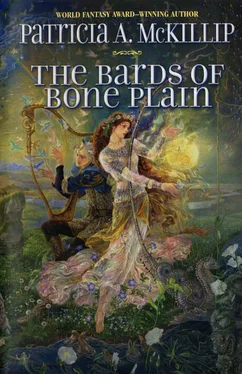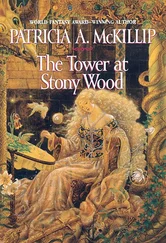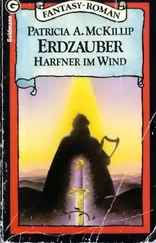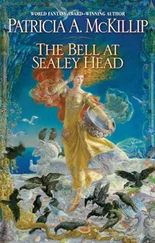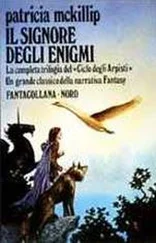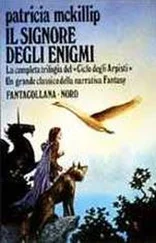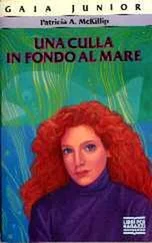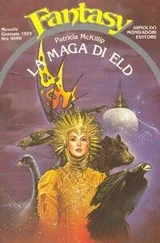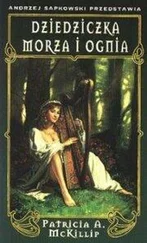“You must know where it is,” he pleaded, demanded, shouted. “You must have seen it. Touched it. Tell me where it is.”
Sometimes, he set his digging sites on places the ancient moon illuminated. Why not there, as well as any other place? He could afford the expense of his impulses, and he did not have to explain himself to anyone. Enough oddities and valuables were found in those sites to transform his lunacy to prescience. He donated the findings to the city museum, or to the private collection of the king. What he searched for seemed, in broad daylight, as ephemeral as that moon. But he existed; he was proof of it; he had lived every hour, every year, every century under its curse.
It was death he searched for in those sites.
A stone. A cauldron. A tower.
One hint of that plain where he had risked everything and lost, that’s all he wanted from the moon. A chance to find it, to change his life. To make it ordinary. To tune a harp to true, to feel his singing voice. For once in his endless life to talk to his child without the stark, unbearable burden of foreseeing both their fates.
For that he pleaded with the moon, littered Caerau with holes, and found only more treasures, more of what he already had, never the arrow pointing the way to the doorposts, the lintel, the ancient threshold stone, the passage to Bone Plain.
That moon alone, of everyone in his life, had seen what happened there. He could talk about it to the pale, distant face that never judged him, just ignored him, as he sat among the charred bones of the past, and went her way like the hunched, mumbling old woman in a tale, collecting twigs on the forest floor for her fire. She alone knew his name.
He had read every paper ever written about Bone Plain. Nobody knew where it was. A poet’s dream, they said. Or perhaps within this particular ring of stones, or that one. The burial mound where the great bards were interred along with their memories and instruments to swap songs for all eternity. Obviously a metaphor for death. For life. For the process of creativity. A mangled fragment from far older times, a jumble of mixed metaphors, images whose origins had grown obscure, shards of ancient tales, all tossed together and carved in stone to torment the brains of scholars for the next millennium or two.
What exactly had he done on Bone Plain?
He had killed an old harper. At least he thought he had. He seemed to have blown the roof off the school tower as well, according to his son. He thought he had shattered the Turning Tower with that last harp note, the one that had sung the depth of his longing, his latent magical powers, his dreams. The one he played to break Welkin’s harp strings. As he had snapped the icicle on the tower roof and killed Drue, so his misbegotten magic had struck Welkin and silenced both him and his harp. Jonah remembered stones burning out of the sky like falling stars, thudding on the ground around him. Cries from those who had been as silent as the standing stones, who had vanished, it seemed, into the night. He remembered the plain suddenly coming to life again, with a hundred cooking fires, the smells of bubbling cauldrons. He remembered running. But then so was everyone else, under that onslaught of stones, smacking into one another, and tripping over tent pegs. Children wailing, dogs barking, birds startling out of the trees, sweeping over the plain.
Not a song, a note of music left anywhere on it. Just shouts and children howling like the dead as Nairn slunk through the chaos he had made, left it behind him, not realizing then exactly how much and how thoroughly he had lost.
He had killed the best harper in the kingdom and had indelibly engraved his own name into the unforgiving annals of poetry.
At least he thought he had, until he saw that ancient, knowing smile in Kelda’s eyes.
Princess Beatrice, finally uncovering stone under the dust and packed dirt of centuries, gazed at it blankly. The level line of outcropping she had freed with such painstaking care had become as firmly defined in her mind as it was entrenched in the earth: an old brick mantelpiece, maybe from a basement apartment that had succumbed to the silt and water of the Stirl swelling over its bed. Something chipped, hollowed, worn, but as recognizable and prosaic as that. She would find the rest of it farther down under the protruding ledge: the walls, the hearth-stone between them, with probably some smoke staining it and bits of charcoal mingled with the river silt.
So she had thought.
Her silence slowed work around her; the others glanced up, vaguely aware of broken patterns of sound, the pause of predictable movements. Campion, working with her at the other end of the protrusion, broke off his brushing to see what had mesmerized her.
“It’s stone,” she told him. “Not brick.”
He shrugged. “That’s common, fieldstone used for chimneys, mantels.”
“It’s not fieldstone. It’s yellow. Like the standing stones.”
He dropped his brush. Behind her, Ida scrambled off her knees from where she was worrying at something on the floor of the dig. Curran, picking at a bump in the wall, straightened. They all came to look at it. What she had thought was bricks and mortar looked like a solid ledge indented with lines carved into the front of it.
Campion whistled. Curran brushed at the hair over his eyes, left a smudge.
“Looks like that disk I shoveled up,” he grunted, peering. “Those lines. More runes. Princess, what on earth have you found?”
“I think,” she breathed, “the Circle of Days.”
Campion cocked a brow. “The what?”
“It’s an ancient runic system.” She started brushing again, violently enough that the others backed up behind her. “It was on the disk, too. Campion—”
He had his own brush working again by then, raising dust storms.
“I’ll help,” Curran said abruptly, and Ida nodded vigorously, her hat sliding over her eyes. Hadrian picked up his tools, shouldered in among them.
“Master Cle will definitely love this.”
“I’m already in love with it,” Campion murmured. “Looks like the oldest thing we’ve ever found.”
“It looks like the oldest thing in the world,” Ida sighed rapturously, and splashed a dusty sneeze across it.
They worked carefully but energetically, impelled by the mystery revealing itself under their brushes and picks. Hours passed. One by one, they climbed up the ladder to eat their sandwiches and came back quickly, before they had quite finished chewing. They managed, with more haste than method, to bare the long face of the ledge, with the pattern of lines running from one end to the other, and had begun to brush away the packed earth beneath it. They slowed, as the familiar daily shafts of light and shadow in the hole shifted until they stood in shade, and the line of light began above the ledge.
The floor was beginning to dampen. Beatrice sighed, stepping back reluctantly.
“It doesn’t look like any kind of a fireplace,” she commented, studying it. Curran moved back to join her.
“Looks more like a door, to me. That’s the lintel stone we’ve been dusting off.”
“Is that possible?” Hadrian wondered, unkinking his thin shoulders.
“Reminds me of things I see in the countryside. One flat stone balanced on two ...”
“Can’t be a door,” Campion said. “No wood there.”
“Well, there might not be, after all this time; might have rotted away.”
“A door to what?” Ida wondered.
“I’m feeling stone where a door would be,” Campion argued.
“Nobody makes a door out of stone,” Ida scoffed. “What kind of a door would that be?”
They were all silent then, gazing at one another. They bent abruptly, gathering tools, hats, paraphernalia, before the floor got any wetter.
Читать дальше
